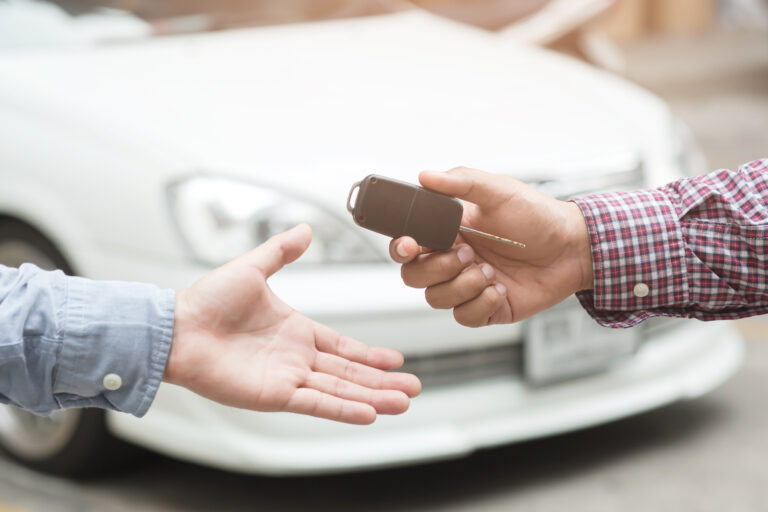by Annabel Cooper
Cars are a big investment and, if money is tight, it can be a difficult and nerve-wracking one to make.
It’s not just the initial cost of buying, licensing and insuring the car you have to budget for – there’s also the ongoing annual renewal fees as well as regular maintenance and fuel costs to consider.
We spoke to the experts at Pembroke dealerships Auto Solutions and Rayclan to find out what cost-effective car options are available, as well as how to make your hard-earned dollars go further in the day-to-day running of your vehicle.
Put simply, if you’re on a budget, go small. Not only will the initial price be lower, but so will the running costs.
“The size of the vehicle purchased dictates the TCD (Transport and Control Department) licensing fees,” said Glen Smith, managing director of Auto Solutions.
“The larger the vehicle, the more you will pay annually in licensing and insurance fees.”
TCD classifies cars from A to H, with A the smallest and H the largest. The difference in licensing fees is huge: to license a private B class car annually costs $376.27, compared with $1,510.27 for an H class. The cost is halved for seniors.
In terms of options for smaller cars, Auto Solutions has the B class Hyundai Atos for $19,995, the C class Hyundai Grand i10 for $24,995 and the C class Suzuki Ignis for $28,495.
All three vehicles can fit up to five people and, while the Hyundai Atos is the more economical, Harry Andrews, sales and operations manager at Auto Solutions, pointed out: “It’s an automatic manual transmission. We advise potential customers to test drive it, but it’s a good value and does still fit five.”
At Rayclan, the most cost-effective car is the B class Chevrolet Spark for $21,500, followed by the Proton IRIZ for $23,500. The latter is a D class, however, so annual TCD fees are more expensive.
Amy Greenslade, vice president at Rayclan, explained that although small the Spark is suitable for families, adding that sometimes parents think they need a larger car for their children than they actually do.
“These cars are designed for five normal humans and you can make things work. Need versus want is a huge thing,” she said.
Mr Andrews echoed this sentiment: “It’s a nicety to have a big car, but do you actually need a big car? The bigger the car, the bigger the licence fee. There’s a fuel efficiency as well. With the size of the engine, your miles per gallon on a smaller car is greater than a bigger car. All that adds up over time.”
|| BUDGETING
Buying a car can be exciting, especially if you have been saving hard for the initial outlay. Ms Greenslade warned that it’s crucial, however, to work out the annual costs of running it and put that money aside for your birthday, when you have to renew your insurance and licensing, which together could be in the thousands of dollars.
“Sometimes it’s easy to get caught up in the ‘yay, I’m getting a new car’, without taking into consideration the next year,” she said. “What I have to do myself, every month, is put money away that is reserved for when my birthday comes. If not, you’re stuck in a position that’s like, ‘oh dear, this is a huge amount of money.’”
She advised buyers to call their insurance company and find out the rate for the following year if they have no accidents or claims and then add that to the TCD amount.
She also recommended asking the dealerships how much an oil and filter change costs as well as a service.
|| REGULAR MAINTENANCE
It is a common misconception that cars only need to be serviced once a year around our birthdays.
With many families “driving a lot more these days”, Ms Greenslade pointed out that an oil and filter change should be made at least once every 5,000 kilometres to prevent expensive engine damage.
“You hear a lot about engines being gummed up,” she explained. “The oil needs to be changed. When you put it in, it’s like water, but if you don’t change it, it ends up like tar, which causes untold problems.”
Maintenance doesn’t always have to involve the full service.
“If you’ve got to do something, change your oil and your oil filter,” she continued, adding that no one should be ashamed to say what their budget limit is so the mechanics can prioritise and not do anything you can’t afford to pay for.
In addition to regular maintenance, there are other things you can do to keep your car in good working order, which saves money in the longer run.
“Something as simple as checking tyre pressure to make sure it’s where it needs to be will extend the life of the tyres,” Mr Andrews said. This can also reduce your fuel consumption.
|| SECOND-HAND
If a brand-new car is beyond your budget, both Ms Greenslade and Mr Andrews noted the second-hand market is strong but advised caution. “Just because it’s shiny and pretty doesn’t mean the inside of the engine looks good. Make sure you can get a service and maintenance record for it,” Ms Greenslade said.
When available, you can buy second-hand cars from Rayclan.
Mr Andrews also suggested taking a potential second-hand purchase to your usual garage, or Auto Solutions, where it can be checked.
“Purchasing second-hand is definitely ‘buyer beware’, but there are things you can double check to ensure you’re buying with a little bit more confidence,” he said.
“The other thing would be, what vehicle do you own now? Is it cost effective to put a little bit more money into your present vehicle which, again, we could help with. One or two little improvements or fixtures that we do could help your car last another three to five years.”

